Women of WASH: Leaders and Change-Makers
Across the world, women and girls bear the greatest burden of the water crisis. They spend hours fetching water, risk their safety traveling to distant sources, and face barriers to education and economic opportunities — all due to a basic need that should be readily available. But with this blog, we assert that women are not just victims of this crisis; they are powerful agents of change.
Women in our network — whether in Kenya, Uganda, Sierra Leone, or here in the United States — are leading the charge to bring safe, reliable water to their communities. As engineers, educators, field officers, and advocates, they are transforming lives.
This International Women’s Day, we celebrate these women. Their stories are a testament to resilience, innovation, and the undeniable link between water access and gender equality. As you read their words, we invite you to recognize the incredible role women play in WASH (Water, Sanitation, and Hygiene) and to consider how you, too, can support this vital work.
Why Women Choose WASH
Field Officer Jacquey Kangu, Western Kenya:
“I love to work in the water sector, especially under The Water Project, because through this sector, [I] am able to fulfill my mission as a social worker, which is to enhance human well-being and meet the basic and complex needs of all people, with a particular focus on those who are vulnerable, oppressed, and living in poverty, by providing direct services, advocating for systematic change, and empowering individuals and communities to improve their lives. For instance, giving water to the needy gives them hope [and] good health, and enables them to be functional and productive members in the community — because water is life.”
Field Officer Adelaide Nasimiyu, Western Kenya:
“[What motivated me to work in WASH is] the passion I have for the community. Seeing marginalized communities being positively transformed through clean and safe water. This greatly motivated me to work in the water sector.”
Field Officer Joyce Naliaka, Western Kenya:
“My passion for community development and a desire to create meaningful change led me to the water sector. Also, growing up in a rural community, I saw firsthand the challenges women faced in accessing clean water, and I wanted to be part of the solution and empower women to improve their lives. Access to safe water is not just a basic need; it’s a foundation for health, education, and economic empowerment. Being part of a solution that transforms lives motivated me.”
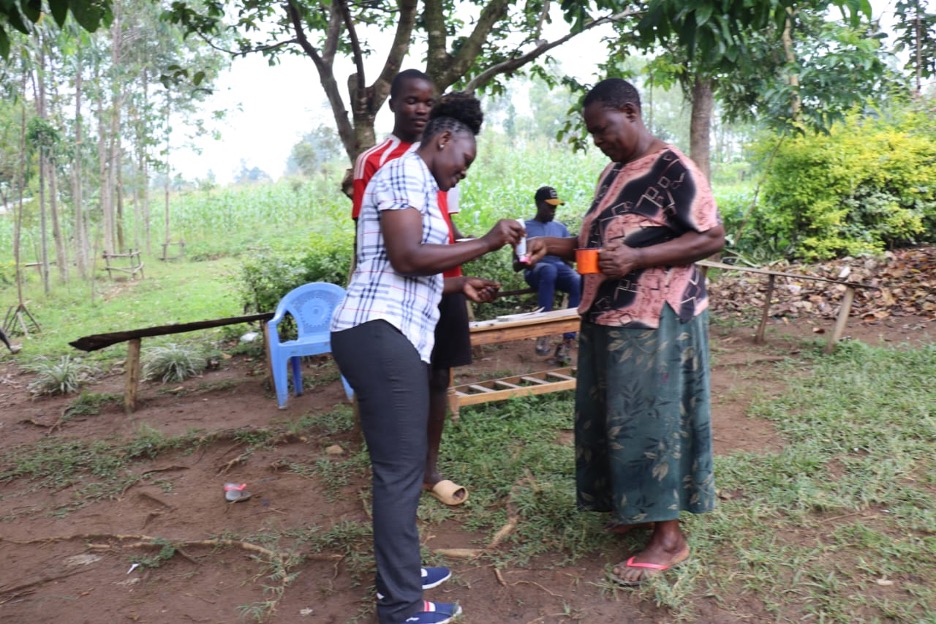
Social WASH Officer Esther Lydia Akol, Uganda:
“My journey into the water sector was driven by a combination of personal experiences, passion, and a desire to create meaningful change and to give back to my communities.
“Growing up, I witnessed how the lack of access to safe water and sanitation negatively impacted our communities, particularly women and girls. It became clear to me that these challenges were not just about infrastructure, but also about equity, health, and human dignity.
“The water sector presented an opportunity to address these critical issues and empower marginalized populations, especially women like me, by reducing the burden of water collection and improving hygiene practices. I was also drawn to the sector’s role in achieving sustainable development by contributing to health, education, environmental conservation, and gender equality for girls and women in my community.
“My passion and motivation lie in the belief that access to clean water and sanitation is a fundamental right that can transform lives. I joined the sector to advocate for this right, work on sustainable solutions, and help build resilient, thriving communities through access to practices to clean and safe water.”
Technical WASH Officer Sarah Katusiime, Uganda:
“I was driven to the water sector by a strong desire to address gender disparities in my village, particularly in ensuring that women and girls have access to clean water and proper sanitation [and] hygiene facilities. I saw firsthand the effects of lack of water and sanitation in their daily lives, especially when it comes to managing menstruation with dignity. By working in this sector, I aim to contribute to sustainable solutions that empower women, improve health outcomes, and create a more equitable community.”
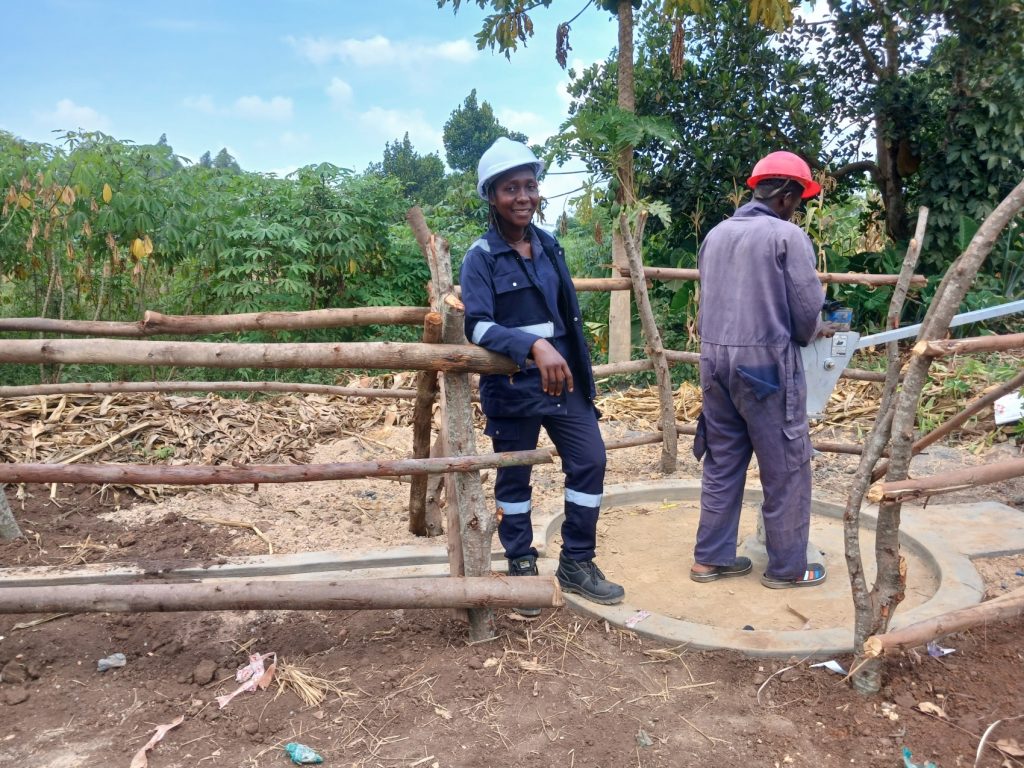
WASH Officer Veronica Mwikali Matolo, Southeast Kenya:
“When I was in high school, there used to be serious incidences of amoebic dysentery and typhoid being diagnosed after visiting the school clinic. [This is] because we used to have water brought to school with a boozer (vendor), which we believed wasn’t clean from the knowledge we got from biology class. From these issues, I developed [an] interest in tackling issues related to public health so as to address similar issues and help transform the lives of others.”
Program Reporting Services Officer Andrea Pavkov, United States:
“I came to the water sector because of my experience living in Mozambique, where people still struggle to access clean water, a fundamental human right. During our time there, at peak, only 41% of the population had access to clean water, and it was even lower in the rural area where we lived.
“I’ve watched children drink from dirty puddles and streams. I’ve attended to children and adults suffering from preventable water-related illnesses. I’ve stood with women waiting hours to collect safe water. I’ve experienced the heartache and frustration of lacking the resources and infrastructure to implement lasting change.”
Deputy Director Christine Luvandwa Mugambi, Western Kenya:
“What brought me to the water sector [was] the satisfaction I saw and could read from my dad as a committed social scientist, whose passion was and still is to help women be the best they can be, especially through easing their duty of getting water, so that less time is spent on such duties, therefore helping them realize their other aspirations and dreams in life. That drove me to want to feel the same way and, to a greater extent, be more like him. I therefore chose a course in college that would lead me towards the same path.”
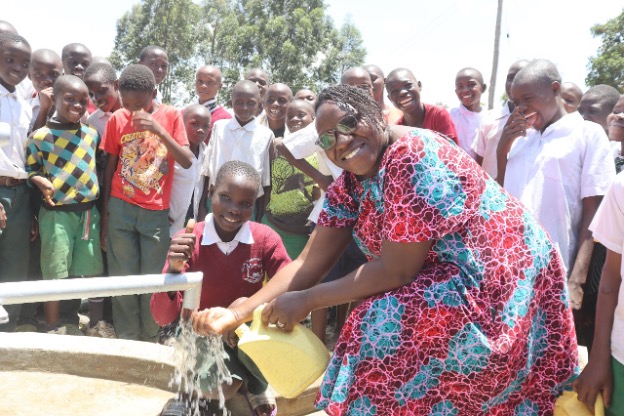
Training Officer Lilian Achieng’, Western Kenya
“Having been born and raised in a small remote village that had less water both at home and at school, I always dreamed of one day seeing women and children access water easily. I wanted to be that person [who] would bring that change in one way or another.
“Secondly, I never understood anything when information about menstruation would be given in my school days. It was spoken [about] briefly, and sometimes in harsh tones. Being a late bloomer, I learned about it on my own when I was almost clearing high school. This gave me the urge to educate young girls about sanitation and hygiene, especially during [their] menstruation period. I wanted to educate them in details.
“Finding these two fused in one item (WASH), gave me so much joy to be in the water sector.”
Monitoring and Evaluation Leader Janet Kayi, Western Kenya:
“My journey into the water sector was driven by a deep passion for community development and a desire to make a tangible impact on people’s daily lives. Growing up, I saw firsthand how lack of clean water affected health, education, and economic opportunities, especially for women and girls. I wanted to be part of the solution — working directly with communities to improve access to safe water and sanitation. Thus, seeing the positive changes that come from sustainable water solutions keeps me motivated every day.”
Head of WASH Department Jemimah Khasoha, Western Kenya:
“I was born and brought up near the great Kakamega Forest. While growing up, one thing was very striking about the pattern of the rain in my village. We would be the first in the then Western province to receive the rains and the last, even after other regions of the country had their last. So, I developed an unexplainable attraction and an undeterred urge to understand the nitty-gritty about water. It’s evergreen in our region and that is why joining in this field would make me ensure it’s green in everyone’s life. Green signifies life and life is not complete without water.”
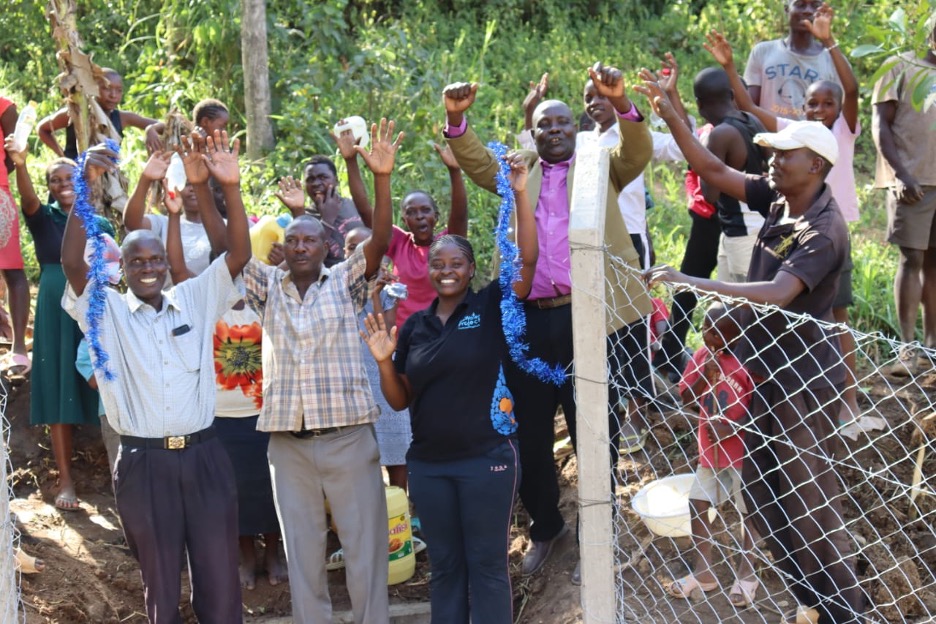
Field Officer Rachael Dorcas Obura, Western Kenya:
“What inspired me to join the water sector are the numerous challenges that women like me face in accessing clean and safe water. Many women have to travel long distances to obtain this precious resource. After carrying water for such distances, they often experience chest and back aches. Over time, fetching water becomes increasingly difficult due to these health issues. This affects the whole family since the hygiene levels at [the] household level will be compromised.
“By working in the water sector, we address these challenges and create solutions that alleviate the burden on women, ultimately improving their health and well-being.”
WASH Officer Betty Johnson, Sierra Leone:
“I live in a community where access to safe water was very difficult and the surroundings of these water sources very dirty. I have learned so much. Now, I will provide insights on how to take care of the sanitation of the water point(s). I have the knowledge and skills of how to clean the environment or the surroundings of the water well.”
WASH Officer Kadiatu Kamara, Sierra Leone:
“Working for the water sector has always been my dream. I have always had the passion to save lives. Now, I have the opportunity to save and transform lives by rendering full WASH to less privileged schools, communities, and healthcare facilities.”
WASH Officer Lauretta Thompson, Sierra Leone:
“As a parent, the idea of providing clean and safe water for less privileged communities sparked my passion. I was also interested in providing menstrual hygiene kits for girls in remote villages with no access for such items. I remember what it was like for me. I love that I have this wonderful opportunity.”
Moments of Impact
Field Officer Jacquey Kangu, Western Kenya:
“While carrying out my duties, one of the experiences that made me feel proud and affirmed my decision to work in this field was this one particular case where two brothers had been enemies for years, but my coming to this community was a such a blessing. During one of my community engagement visits before the spring protection, I told the users that apart from just providing water, we also value strong relationships, because [there is] strength in unity, and it actually enables us to achieve and accomplish things we wouldn’t have achieved single-handedly.
“What amazed me is that even before the completion of spring protection, the two brothers had reconciled, and they actively participated in the spring protection process. This really gave me a high level of satisfaction and contentment because, apart from just providing water, I also had the opportunity to speak peace and unify a family.”
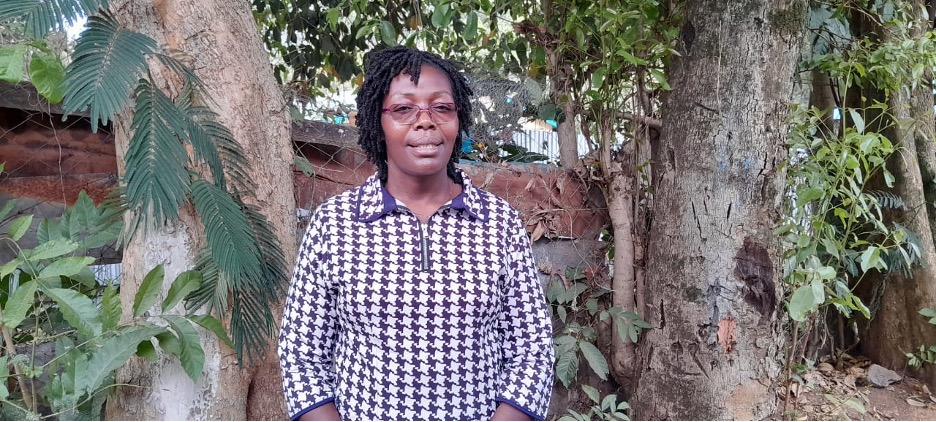
Field Officer Adelaide Nasimiyu, Western Kenya:
“There is a community that had lost most of their loved ones to waterborne diseases. After protecting [their] spring, installing [a] chlorine dispenser, and training them on hygiene and sanitation practices, [I] went back after one year of implementation, and the changes were visible. The positive testimonies from the community members made me feel proud of what I do.”
Field Officer Joyce Naliaka, Western Kenya:
“One of the most memorable moments was witnessing the joy of a community when a new water point was inaugurated. Seeing women and children celebrate their newfound access to clean water reminded me why this work matters. It reinforced my belief that sustainable water solutions directly uplift entire communities.”
Social WASH Officer Esther Lydia Akol, Uganda:
“One moment that truly affirmed my decision to work in the WASH sector was during a project implementation [that] was aimed at providing clean water to rural communities. Before the intervention, children, especially girls, spent hours walking long distances in search of water, often missing school as a result. After the installation of a borehole within the community, I visited the site a few weeks later and spoke to some of the local families during a feedback session.
“A young girl approached me with a bright smile and said, ‘Now I can go to school every day because clean water is here and it is near my home.’ Her words moved me deeply. It was a powerful reminder of how access to safe water can transform lives, not just by improving health, but by unlocking opportunities for education and a brighter future for young girls to thrive.
“Knowing that our efforts had enabled girls like her to focus on learning rather than spending hours fetching water was profoundly rewarding. It underscored the critical role WASH plays in breaking barriers for children, especially girls, and reaffirmed my commitment to this vital work.”
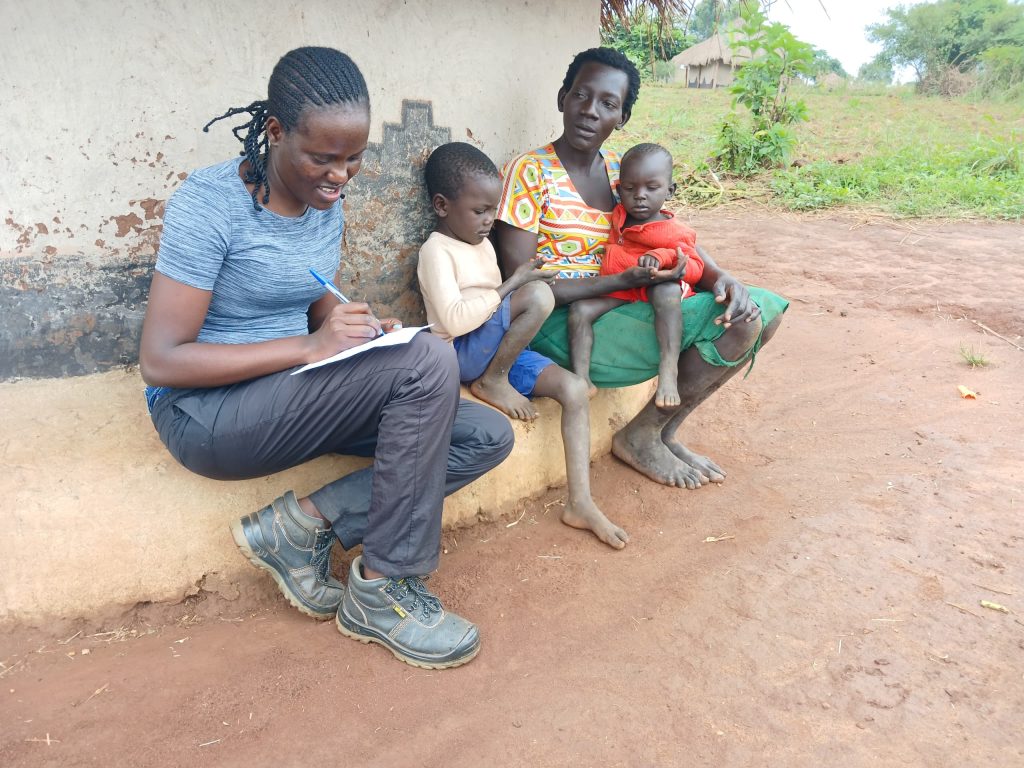
Technical WASH Officer Sarah Katusiime, Uganda:
“One of the most affirming moments in my work was when a woman in the community shared how life had changed since the installation of a new water point in her community. She recalled a time when having a jerrycan of water at home was considered a luxury, and they had to reuse every drop — washing utensils, then using the same water to rinse food, and finally for personal hygiene. Women would walk over long distances and spend hours just to return home with a single jerrycan of water. This was often at the expense of their health, time, and dignity. Seeing the relief and joy on her face as she spoke about the ease of accessing clean water today reassured me that I am in the right field. It reminded me that access to safe water isn’t just about convenience, but it’s about restoring dignity, saving time, and improving lives, especially for women and girls.”
WASH Officer Veronica Mwikali Matolo, Southeast Kenya:
“While conducting school monitoring and community follow-ups, it has been satisfying seeing pupils chlorinating their drinking water. In communities, people have adopted different water treatment methods. Seeing people have sanitation infrastructures during follow-ups is motivating. For instance, there’s a community that I once trained [through] Community Led Total Sanitation (CLTS). [There were] several members that didn’t have latrines and [we spotted] a lot of open defecation during [our] transect walk. After a few months, all the homesteads had latrines, and it was so nice seeing an open-defecation-free community.”
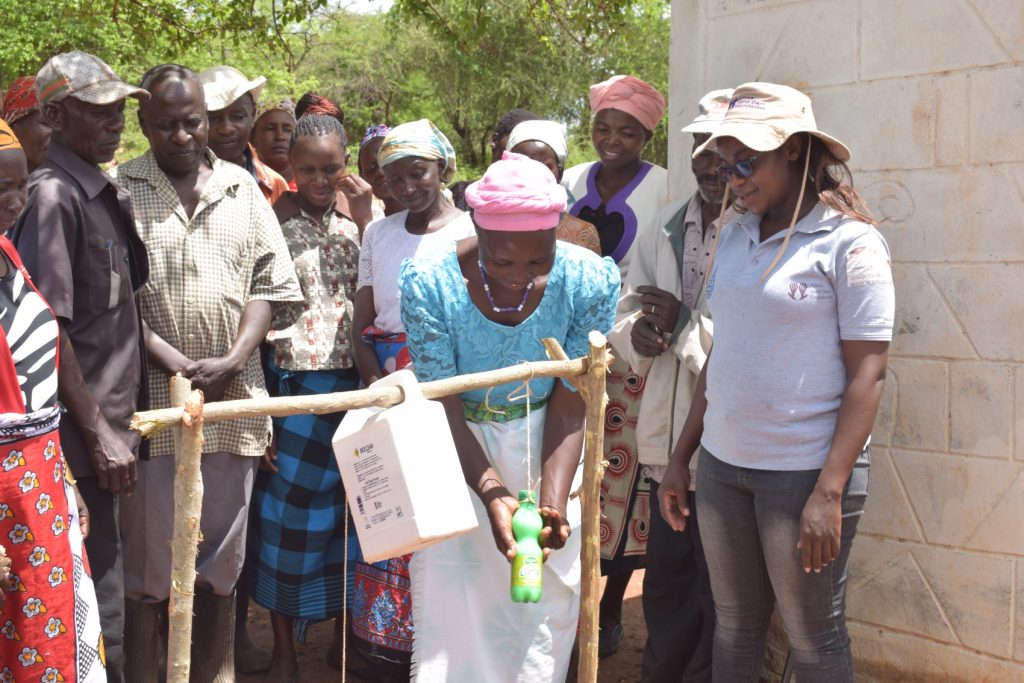
Program Reporting Services Officer Andrea Pavkov, United States:
“Whenever I write a report in which a woman or girl, in particular, celebrates having access to clean water, my heart swells, and I reaffirm that I love being a part of this work. Clean water brings freedom! It helps eliminate unnecessary hardships and suffering and restores girls’ well-being so they can pursue their dreams.”
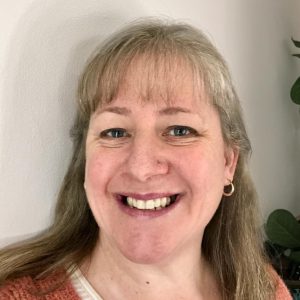
Program Reporting Services Officer Kelli Hilton, United States:
“A deep desire to make a difference in the world led me to the water sector, providing me with the opportunity to inspire my children to care about others and contribute to a better future for all.”
Deputy Director Christine Luvandwa Mugambi, Western Kenya:
“I remember overseeing the implementation of a project in a school known as Lugango Primary School, at a time when I was also preparing for my wedding in the years 2018/2019. The community was really in dire need of the water facility, but had major challenges in mobilizing for locally available [construction] materials.
“I remember the unskilled laborers bringing in one wheelbarrow of sand at a time, since they had to borrow [it] from people’s homesteads, yet [the amount that] was required was in tons. The skilled artisan would complain, since the speed of work was now reduced and this meant he had to stay on that one site longer than he expected. I had to get [the] contact [information] of the Member of Parliament in charge of the constituency, get other local politicians, and pretty much the aid of whoever I could reach to ensure the project was a success, while at the same time be present at my wedding planning committee meetings and move around in search of every requirement, for instance, my wedding gown.
“There [were] times that I felt overwhelmed, but what kept me grounded was my reason for joining the sector. I would remember my dad’s words. ‘I always feel like I am doing ministry work, what God called me to do, every time I help a community thrive. This, in turn, helps me sleep peacefully at night. Knowing my obligation is fulfilled gives me great satisfaction,’ my dad would always say after a long day in the field.”
Training Officer Lilian Achieng’, Western Kenya:
“There are so many moments that are memorable to me that have made me feel proud to have made a decision to work in this field. Seeing a big smile from someone who has received a gift of clean and safe water always melts my heart.
“There was one incident when I was working on protecting an unprotected spring in a remote community. There was this old lady (in her late 80s) who had not been down to the spring for almost fifteen years due to her age and illness. When the project started, she asked to just see me and shake my hand. She personally told me that she got married at the age of sixteen in that community and ever since she had consumed water from the unprotected spring. She affirmed that she had only seen a protected spring in other neighboring communities, but not in hers. When the works were pronounced complete, for the first time in fifteen years, the old lady picked [up] her walking stick and slowly walked down just to see for herself the ‘miracle of safe water’ that had just happened. Her smile on seeing the protected spring made my eyes teary. I was sure that I was in the right sector doing the right thing.”
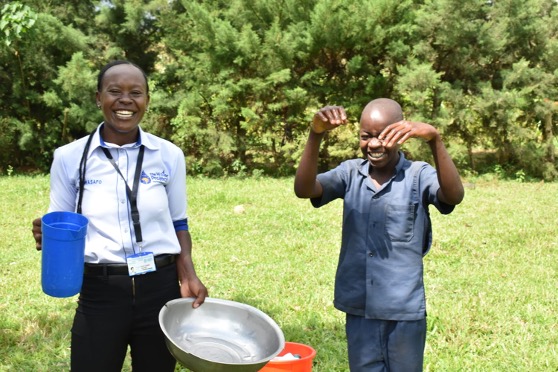
Monitoring and Evaluation Leader Janet Kayi, Western Kenya:
“One of the most rewarding moments in my work was when a small rural village I had been working with for months finally gained access to a clean water source. Before the project, women and girls had to walk for hours every day to collect water, often missing school or other opportunities.
“When we installed a spring near the village, I saw the pure joy and relief on their faces. One young girl told me she could now go to school every day without worrying about fetching water. That moment affirmed that my work is not just about water — it’s about dignity, opportunity, and transforming lives. It reminded me why I chose this path and why I will continue advocating for safe water access for all.”
Head of WASH Department Jemimah Khasoha, Western Kenya:
“This happened in one of the recent sites I was assigned to supervise. A school [was] established in a very rocky place with an abandoned well that never yielded any water. Here I was with a similar project, albeit with a different angle of approach. The drilling went on smoothly from the start to the end. But it was all dry. The air filled with a white smoke of dust. Hopes of both the learners and teachers dimmed suddenly. I held on to faith and followed up ‘til I received a positive report that the borehole had recharged. The second time I visited the site, all were happy to receive me, and I felt so proud that, finally, the water issue was sorted.”
Field Officer Rachael Dorcas Obura, Western Kenya:
“One of the moments that made me feel very proud and affirmed my decision to work in this field was witnessing students access reliable, clean, and safe water within the school compound. The students can now easily carry out practical lessons that require water, such as molding, handwashing, oral hygiene lessons, and gardening, without any worries about access to water.
“Furthermore, students no longer need to bring water from home, which is often tedious; instead, they can use that time to study and improve their grades.”
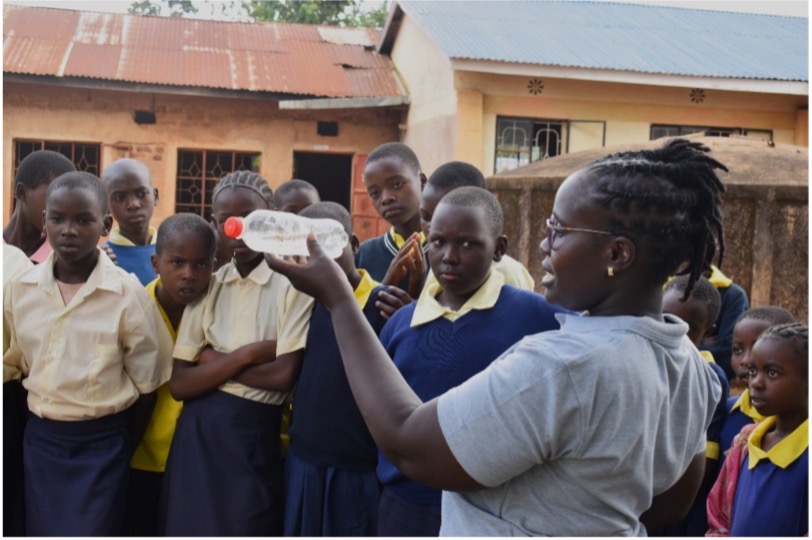
WASH Officer Kadiatu Kamara, Sierra Leone:
“I witnessed [the] handing-over ceremony of a water well in one of our communities. I was extremely happy to be part of the life-saving team by providing safe drinking water to this community who were really suffering to fetch water. Though the community was very old, they had never experienced safe drinking water. It was really wonderful to experience their joy.”
WASH Officer Lauretta Thompson, Sierra Leone:
“Every day, I come across children and families [who] have lost all hope of ever making it to the next day. I have hundreds of stories, so it’s difficult to choose from, but any time I get the opportunity to help change the lives of children from despair to a life of hope I jump in with all my heart.”
What Water Means to Women
Field Officer Jacquey Kangu, Western Kenya:
“Water means the whole world to me. It is a precious natural resource that all living things need for survival. Every day I wake up to see water flow, I see myself surrounded by life. I get motivated to engage in the day’s activities with much confidence [and the] assurance that I will be able to quench thirst, cook, clean, and take care of my livestock.
“Being a mother, water gives me total peace and joy, since [I] am assured of the safety of my children’s hygiene and good health.”
Field Officer Adelaide Nasimiyu, Western Kenya:
“Water, to me, represents life, resilience, and connection. Water is essential to all living things, both the plants and animals. Water also connects us with different communities and builds relationships. Water is life.”
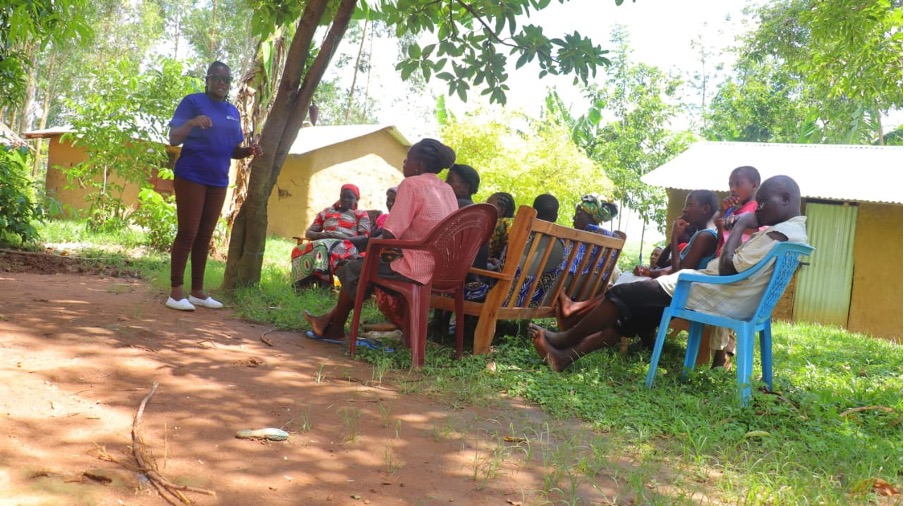
Field Officer Joyce Naliaka, Western Kenya:
“Water symbolizes life and opportunity. It means health for families, time for children to pursue education instead of fetching water, and a chance for women to engage in economic activities. Personally, water represents hope and progress.”
Social WASH Officer Esther Lydia Akol, Uganda:
“Personally, water is not just a necessity, it is a right. It connects us all as women and it reminds me every day of the importance of protecting and sustainably managing this precious resource for the future generations.
“The phrase ‘water is life’ that we used to chant as little girls moving long distances looking for water now resonates [with] me as a woman because it gives me dignity and opportunity to be who I want to be. It represents the foundation of everything we depend on as women from our health, our livelihoods, and our ability to thrive.
“To me, water is a symbol of equity and justice. Access to clean water empowers women, strengthens communities, and creates pathways for education (especially for girls in the community), economic growth, and resilience.
“As a woman, I also view water through the lens of its profound impact on gender equality. When women and girls access safe water nearby, they gain time and freedom to pursue education, careers, and other aspirations. To me, water is a powerful equalizer, a means to uplift the most vulnerable and ensure everyone including a woman has the chance to lead a healthy and fulfilling life.”
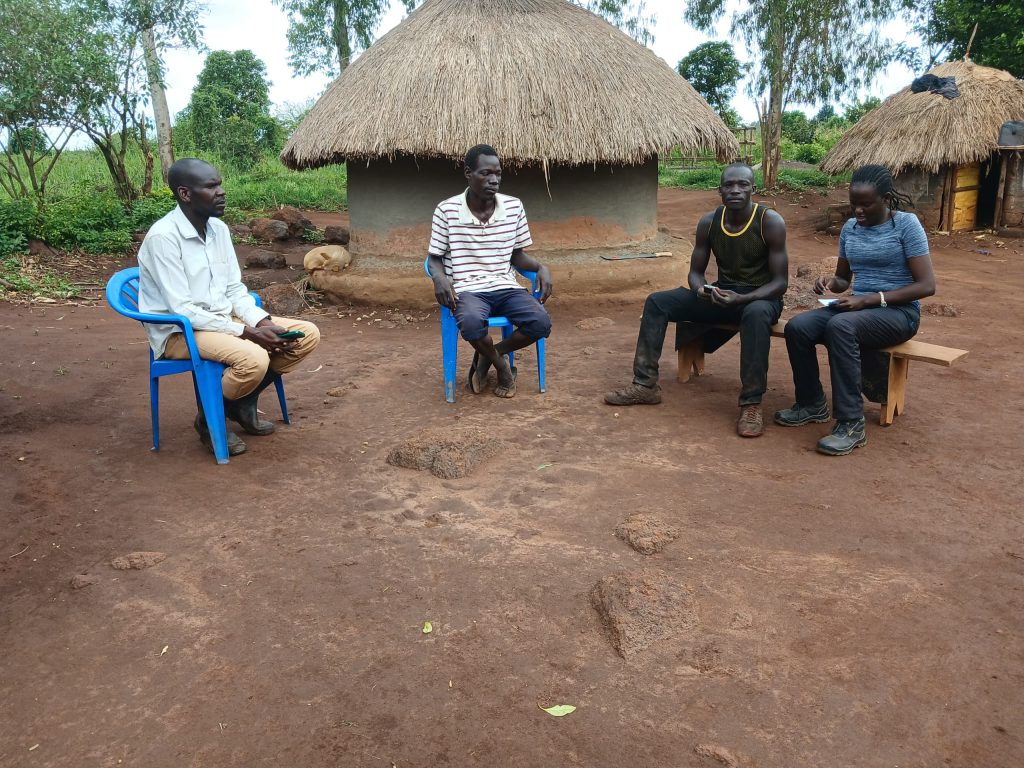
Technical WASH Officer Sarah Katusiime, Uganda:
“To me, water is more than just a basic necessity; it is life, health, and dignity. It means having the ability to cook, clean, and sustain livelihoods without struggle. It signifies improved health, as access to clean water reduces the spread of waterborne diseases, ensuring that families, especially children, can grow up healthy and strong. Water also brings peace of mind, eliminating the fear of illnesses caused by unsafe sources.”
WASH Officer Veronica Mwikali Matolo, Southeast Kenya:
“Water is life.
“By saying this, you’ll understand that water is life when visiting [the] southeastern parts of Kenya or other arid lands, meeting women and young people in rivers or other water sources queuing to fetch water; people walk very long distances, especially during dry seasons, to look for water since nothing survives in absence of water.
“Seeing crops thrive well in areas that have been dry for years, and when a water project is done, you visit and love the crops doing well with lives being supported by water.”
Program Reporting Services Officer Andrea Pavkov, United States:
“Living overseas, my family often dealt with water scarcity, and much of my day was consumed with the everyday tasks of boiling and filtering water to keep it safe enough for our family to consume. I often rationed water, bought bottled water, or paid to have water delivered.
“We returned to the U.S. permanently thirteen years ago. However, at times, I still find myself internally expressing gratitude that I can turn on our faucet and drink directly from the tap without worry of illness, that hot water comes out of my shower, that I can wash dishes without boiling water, and that I can use my washing machine instead of doing laundry in a bucket. Access to clean water matters!”
Program Reporting Services Officer Kelli Hilton, United States:
“I’ve learned well from our partners in Africa: ‘Water is life.’ It provides security and stability and is the foundation of health and progress. Without it, uncertainty and anxiety take hold, limiting opportunities and stifling potential. But with reliable access to clean water, everything changes — hope flourishes, dreams become achievable, and individuals, families, and entire communities have the chance to grow, thrive, and build a better future.”
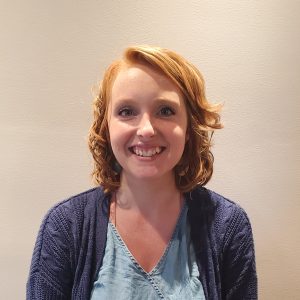
Deputy Director Christine Luvandwa Mugambi, Western Kenya:
“Water, to me, means the ability to keep everything I value clean; this means my home, my family’s clothes, my children, and myself clean and generally be able to thrive in an environment that is dirt-free. At times, I always think I could have OCD, since my desire to have a clean environment is among my top priorities. I would rather sleep late, despite having had a long day at work, but yet be unable to sleep if the house is not clean and in the order I prefer it to be in in preparation for the next day.”
Training Officer Lilian Achieng’, Western Kenya:
“To me, water is an equalizer, just like oxygen. Both the rich and the poor need it. There are things in life that we can do without, even if others have them and we don’t. Water is not one of them.”
Monitoring and Evaluation Leader Janet Kayi, Western Kenya:
“To me, water is life, dignity, and opportunity. Growing up, I saw how the lack of clean water affected families, especially women and girls, forcing them to spend hours fetching water instead of pursuing education or income-generating activities.
“Water is not just a basic need — it is a foundation for health, empowerment, and development. When a community gains access to safe water, everything changes: children stay in school, women have time for meaningful work, and families thrive. This is why I am passionate about my work in the water sector — because water has the power to transform lives and it unlocks potential!”
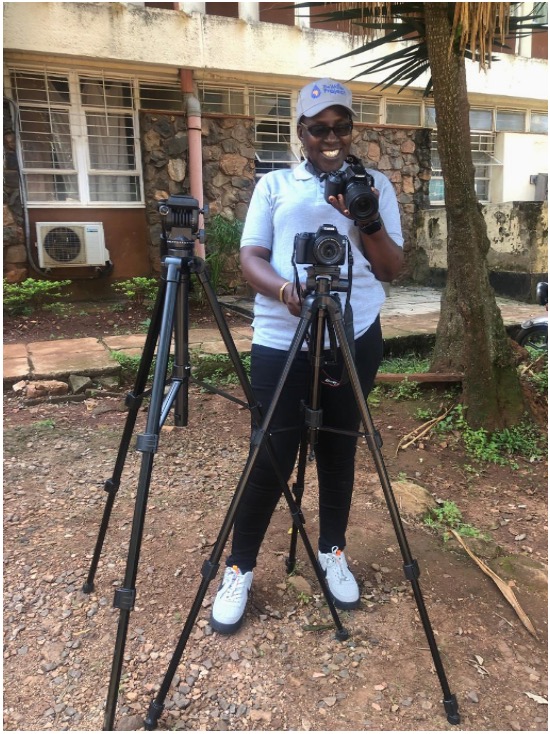
Head of WASH Department Jemimah Khasoha, Western Kenya:
“Water is the most important component of life as far as I am concerned. Without which, there is no existence. All that I see, from nature to all living creatures, I see water.”
Field Officer Rachael Dorcas Obura, Western Kenya:
“Water is life to me, and the sight of clear, sparkling water flowing from protected springs and boreholes is nothing short of inspiring. This vital resource must flow freely, as it represents not just purity, but also hope. Each drop is a powerful reminder of the life-sustaining force that water provides, ensuring communities can achieve a healthier and brighter future.”
WASH Officer Betty Johnson, Sierra Leone:
“Water means to me a lot. A life without water is nothing. When I wake up in the morning, I use water to wash my face, use it to drink, [and] bathe, and this has contributed immensely to my health. I use water to practice personal hygiene. Without access to safe drinking water, there really is no quality [in] life.”
WASH Officer Kadiatu Kamara, Sierra Leone:
“Water means everything to me because I cannot live or do anything without water. From dawn to dusk, water is needed for me to be able to perform my daily functions. To bathe, cook, launder, and use the restroom.”
WASH Officer Lauretta Thompson, Sierra Leone:
“Water means life to me. Without water, there is no life. I will survive without food, but will not survive without water. I need water to cook, to clean, to wash, to drink, and my daily life revolves around having access to clean water every day.”
Program Manager Emma Kelly, United States:
“To me, water is a force of equity and opportunity. Water does so much on its own — it hydrates us, allows us to cook, and helps us maintain our hygiene. But lacking water does not only result in thirst or poor hygiene. Lacking access to water steals time and energy, especially from women and girls. Easy access to water means women and girls are no longer forced to walk long distances to fetch water, which gives them new opportunities for fun, for betterment, for escaping the cycle of poverty.”
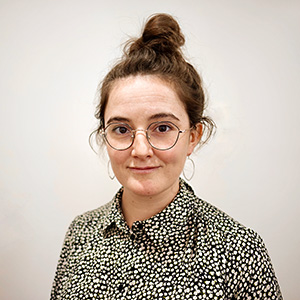
Monitoring, Evaluation, Resolution, and Learning Associate Catherine McManus, United States:
“I live in a place where I don’t have to think about where my water comes from or if it’s safe to drink. In my own life, I can take water for granted — which is why it’s so important that I never do.”
Challenges & Overcoming Them
Field Officer Adelaide Nasimiyu, Western Kenya:
“In the region we work in, some communities are still upholding their cultural and social norms on women’s discrimination. These communities believe women are not supposed to stand in front of people to train, especially men. This brings a big challenge, especially during hygiene trainings. Since I want to respect their culture and social norms, I always [bring] male colleagues to such communities to avoid conflict and resistance.”
Field Officer Joyce Naliaka, Western Kenya:
“Like many women in male-dominated fields, challenges are there but manageable, especially in communities where cultural norms and beliefs are strictly observed. Like in a case where some communities don’t allow women to speak before men and others where women should not be present during certain practices or functions. This is where my voice needed to be louder to be heard. I have overcome these challenges by building confidence in my expertise, forming strong networks with other women, and continuously advocating for inclusivity and gender equality within the sector.”
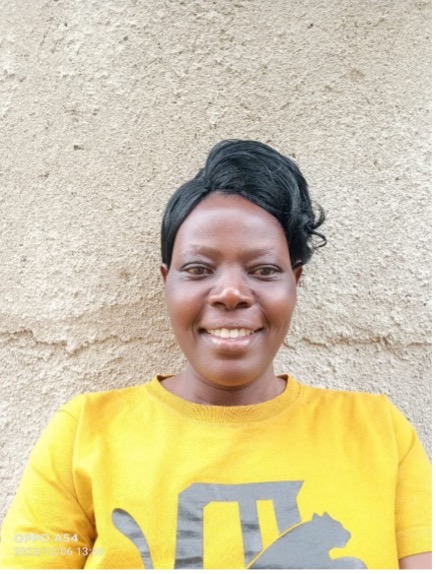
Social WASH Officer Esther Lydia Akol, Uganda:
“I have faced challenges, mainly negative societal perceptions questioning my ability as a woman to lead technical projects and manage complex decisions.
“To overcome this, I’ve focused on demonstrating results [and] letting my work speak for itself. I also engage communities directly, building trust by involving them in solutions and showing how inclusive approaches create better outcomes. By fostering collaboration and staying persistent, I’ve earned respect and shifted perceptions, both within the sector and in the communities I serve while keeping in the approach of community engagement and accountability.”
Technical WASH Officer Sarah Katusiime, Uganda:
“I have faced challenges as a woman in this sector, particularly in changing long-held mindsets about water, sanitation, and hygiene in communities. Many community members would often say, ‘We have used unprotected water since we were born, and our ancestors drank unboiled water without issues arising.’
“Overcoming this resistance required patience, persistence, and strategic engagement. I have focused on continuous community sensitization, using proven approaches like Community Led Total Sanitation, Participatory Hygiene and Sanitation Transformation, as well as direct home visits to encourage behavior change. Most importantly, by ensuring access to clean and safe water, I have been able to demonstrate the benefits of safe water firsthand. Seeing communities gradually embrace better WASH practices has been a rewarding experience, reinforcing my commitment to this work.”
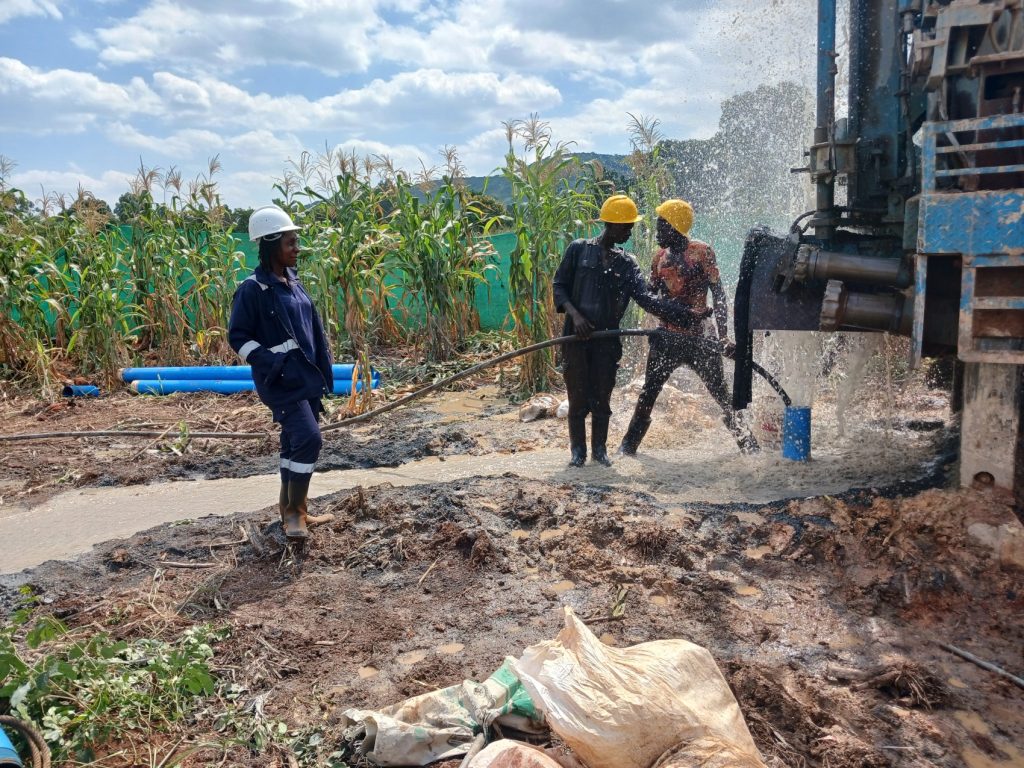
WASH Officer Veronica Mwikali Matolo, Southeast Kenya:
“Sometimes, I wish that community challenges were addressed overnight upon interacting with beneficiaries. I have since learned to walk the development journey together with beneficiary populations.”
Monitoring and Evaluation Leader Janet Kayi, Western Kenya:
“One of the biggest challenges I have faced as a woman in the water sector is being in spaces where my expertise and contributions were sometimes overlooked or underestimated. In many communities, water management has traditionally been seen as a male-dominated field, and gaining trust and respect has required extra effort.
“To overcome this, I have remained confident in expressing my knowledge and skills, continuously learning and proving my capabilities through action. I have also built strong relationships with both community members and colleagues, showing through my work that women play a vital role in shaping sustainable water solutions.
“Another challenge is the emotional toll of working in communities where access to clean water is still a struggle. Seeing families suffer due to water scarcity can be heartbreaking. But I stay motivated by focusing on the impact we are making — one project, one household, and one life at a time. Knowing that my work contributes to lasting change keeps me going, even in difficult moments.”
Head of WASH Department Jemimah Khasoha, Western Kenya:
“As a woman working in the water sector, I have faced a myriad of challenges. First off, with the communities where men have the final say. It gets so difficult to convince men in such communities to even make non-monetary contributions to the project. But I have always emerged victorious because of my strong bargaining power.
“Then there are these other communities that focus so much on dress code, with special emphasis on the women. Most of the roads are impassable with vehicles, so we use motorcycles, which requires us to put on trousers for safety and security.
“Another challenge is when you get to a community which is in need of water but [the spring has] insufficient [water] and cannot be protected. It pains [me] to see such [a situation], but there is nothing you can do, only to pray and ask God to intervene.”
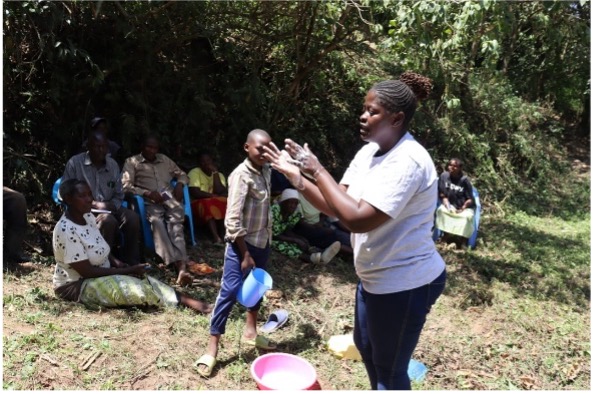
Field Officer Rachael Dorcas Obura, Western Kenya:
“Some communities still follow long-gone traditional practices, like when you call people for training on water, sanitation, and hygiene, some men or women won’t attend because of the community norms whereby fathers-in-law cannot stay in the same forum with their daughters-in-law, or daughters and fathers can’t stay in one forum. So, as a trainer, this saddens me because the training will not be well-attended because of the fear. As a trainer, I try to convince them — [some] agree while others remain very adamant.
“Women also face challenges due to this traditional norm whereby men can’t collect water even when their wives are sick or pregnant. Women have to access these water points which, at times, are very bushy and have dangerous terrain.”
WASH Officer Betty Johnson, Sierra Leone:
“I am a woman, and sometimes I face challenges, but I try hard to manage and resolve or work on them. I don’t let [the fact] that I am a woman work against me. Instead, I choose to be a world changer and have the right attitude and mindset.”
WASH Officer Kadiatu Kamara, Sierra Leone:
“No, I have not faced any challenges being a woman in the water sector. Because of the fairness the organization gives, I am more encouraged to continue in the water sector with the hopes that I will continue to improve and [be] promoted.”
WASH Officer Lauretta Thompson, Sierra Leone:
“I have not faced any challenges in the water sector as a woman; however, I would love to see more women in the field.”
Program Manager Emma Kelly, United States:
“Of course, there are challenges that come with being a woman in WASH, as there are in so many sectors. If you’re working in international WASH, and especially in emergency contexts, you have to be ready to take care of your own safety and mental health. These things are a challenge in any context, but especially in unfamiliar environments or in positions where you have to move around a lot and adapt to new cultures, new gender dynamics.
“Travel is one of the things that drew me to international work, but it can be exhausting, isolating, and sometimes dangerous. My advice to women who are traveling for WASH jobs is to start slow — for your first job, try to find a role based in your country, or in a country that speaks your language. Read up about the context and culture of your new home, and trust your instincts if you don’t feel safe. And don’t deprive yourself of creature comforts! Pack the self-care products you like or carry something that reminds you of home — there are no extra points for being tough. You will be doing great, important work and deserve to be safe and comfortable.”
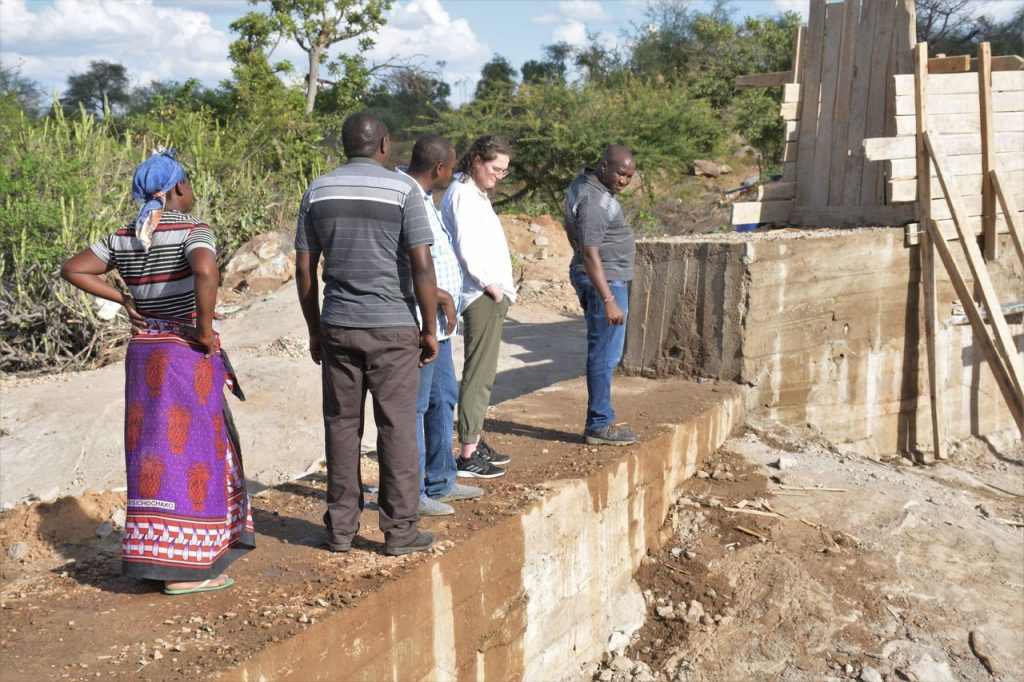
Monitoring, Evaluation, Resolution, and Learning Associate Catherine McManus, United States:
“I have found that the best way to thrive as a woman in engineering, WASH, academia, and the world is to find other women who have walked the same (or different!) paths I am walking. I am lucky to be part of a network of women who are not only intelligent and strong and capable, but who are also kind and empathetic and so beyond willing to support me and other women navigating a world and sector that are not always so friendly.”
Advice for Future Female WASH Leaders
Field Officer Jacquey Kangu, Western Kenya:
“I would advise young women interested in working in WASH to stick to the mission of the organization, and ensure they practice good morals as they carry out their duties, and remain focused.”
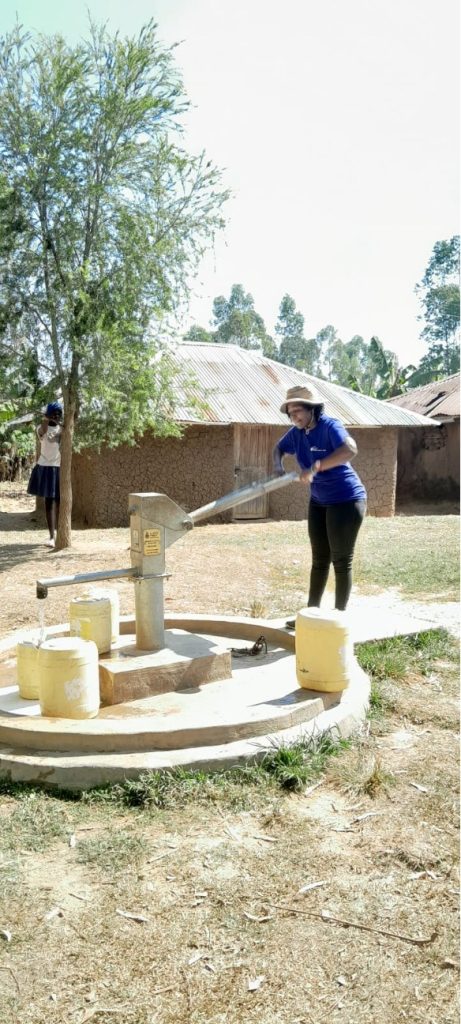
Field Officer Adelaide Nasimiyu, Western Kenya:
“Don’t let challenges discourage you from pursuing your dreams. Water is life, and working in [the] water sector is not just beneficial, but essential, too.”
Field Officer Joyce Naliaka, Western Kenya:
“Be bold and relentless in your pursuit of change. Your voice matters and your contributions can reshape communities. Seek mentorship, keep learning, and never underestimate the power of your work in creating a ripple effect of positive impact.”
Social WASH Officer Esther Lydia Akol, Uganda:
“My advice to young women interested in working in the WASH sector is to believe in their abilities and pursue their desired path with confidence and determination while focusing on building their expertise, whether it’s through education, technical training, or field experience, and to never stop learning. I would also advise them to seek out mentors and role models who can guide and inspire them, and not to hesitate to network with others in the sector for support and collaboration.
“And most importantly, to remember this statement: your voice matters. Women bring unique insights and empathy to WASH projects, especially when addressing the needs of other women and children who are most affected by water, sanitation, and hygiene issues.”
Technical WASH Officer Sarah Katusiime, Uganda:
“My advice to young women interested in working in WASH is to remember that this work is about saving lives and making lasting change. They should note that behavior change takes time. You may face resistance at first, as deeply rooted practices don’t shift overnight, but stay patient, persistent, and committed. Every small step you take — whether through education, advocacy, or providing clean water — contributes to healthier communities. Your efforts will not only improve lives, but also empower others, especially women and girls, to live with dignity and better opportunities. Stay passionate and never underestimate the impact you can make.”
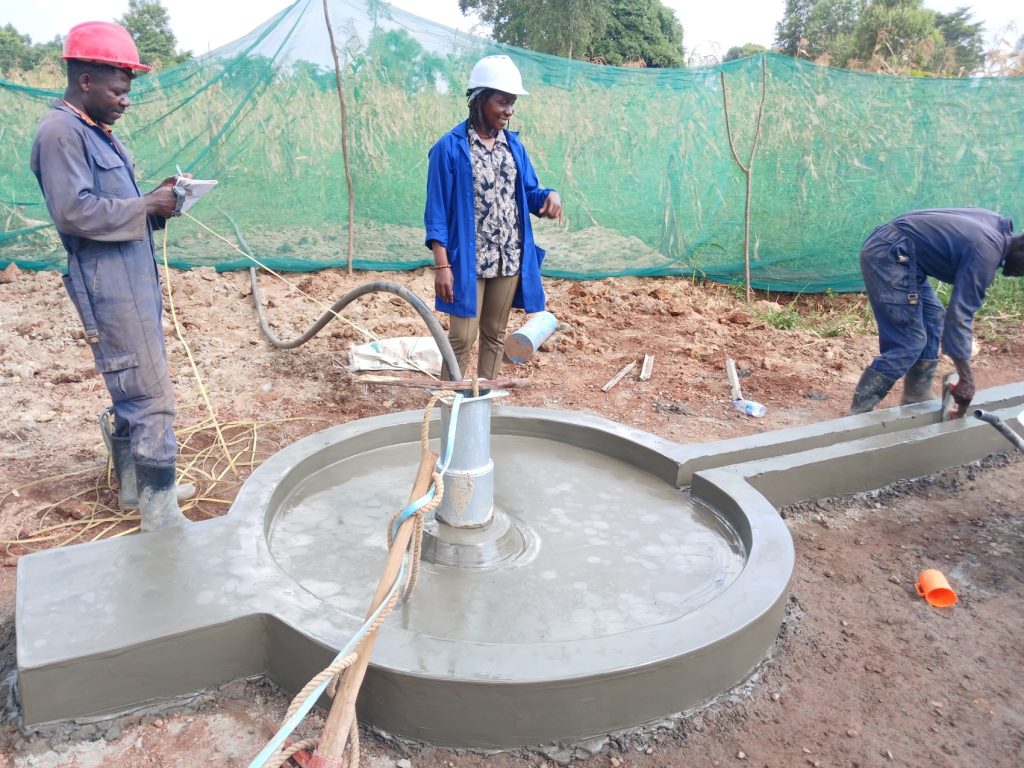
WASH Officer Veronica Mwikali Matolo, Southeast Kenya:
“WASH is feminine (interesting). In Africa, or, to be precise, in Kenya, women are highly involved in hygienic matters, cooking, [and] washing clothes, among other [things] like understanding when kids are unwell. Even in [hygiene] trainings, you’ll find that a good number [of attendants are] women.
“Working in WASH is so satisfying, since one understands what fellow women go through in terms of WASH-related issues, and handling them is easy. Seeing a woman satisfied after helping them out is lovely. Therefore, I would persuade women to join this sector and be part of the team addressing fellow women’s challenges.”
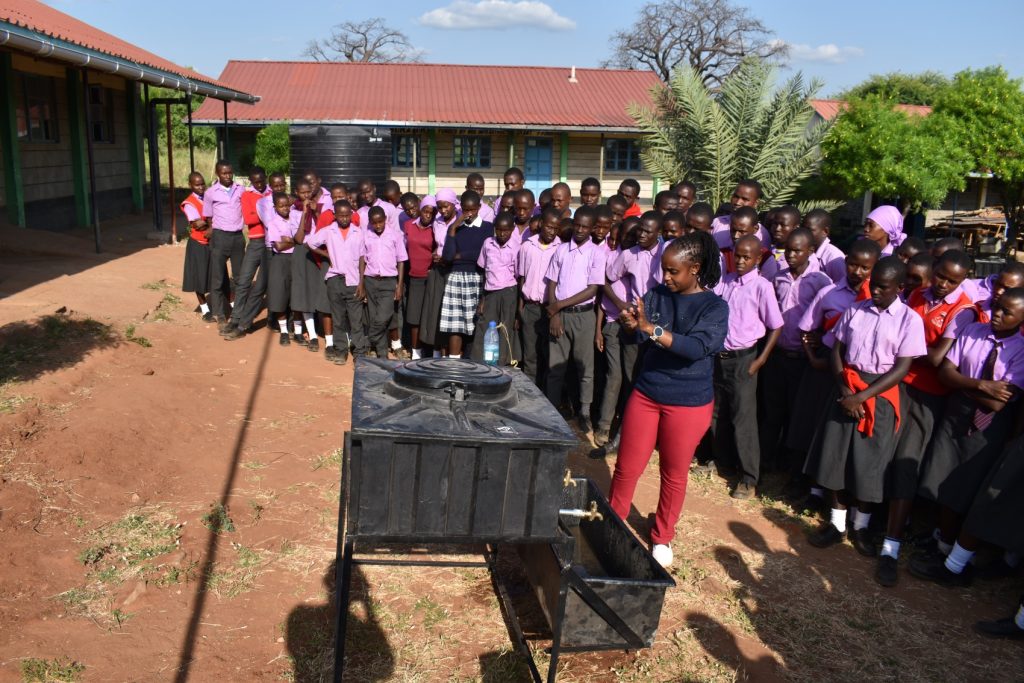
Program Reporting Services Officer Kelli Hilton, United States:
“If I could give advice to young women interested in the WaSH sector, it would be this: We need you. People all over the world are waiting to be inspired by your passion.”
Deputy Director Christine Luvandwa Mugambi, Western Kenya:
“Over the years, women have been tasked with the responsibility of handling all household duties, which mostly are water-dependent. This hasn’t changed over time, and we therefore have a role to play in contributing to a better narrative when it comes to water needs and the solutions [women] can offer, since it has always been our responsibility. [Women] ought to set their minds towards a successful future in WASH, as our voice in this sector really matters.”
Training Officer Lilian Achieng’, Western Kenya:
“My advice to young women who want to work in WASH is that it is doable despite the challenges. Being in the WASH sector requires selflessness [and] putting others’ needs for water, sanitation, and hygiene first.”
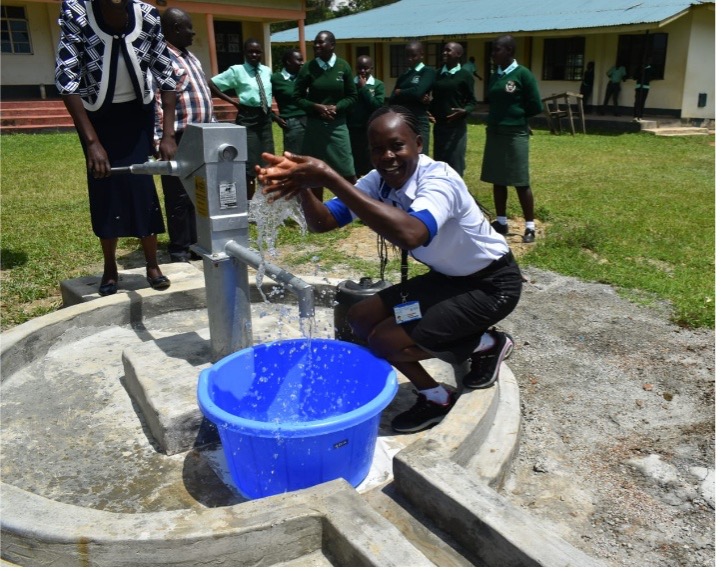
Monitoring and Evaluation Leader Janet Kayi, Western Kenya:
“My advice to young women interested in the WASH sector is to believe in yourself and your ability to create change. When I started in this field, I faced doubts — both from others and sometimes even within myself. But over time, I learned that passion, dedication, and knowledge are more powerful than any barrier.
“The WASH sector is not just about water; it’s about dignity, health, and opportunity. Women and girls are often the most affected by water challenges, so our voices and perspectives are essential in shaping solutions. Don’t be afraid to take up space, ask questions, and challenge the status quo.
“Build your skills, seek out mentors, and surround yourself with people who support your growth. There will be challenges, but don’t let them discourage you — let them fuel your determination. Remember, every clean water source you help bring to a community, every girl who can stay in school because of your work, and every life improved because of your efforts makes it all worthwhile.
“You belong in this field, and the world needs more women like you to lead the way!”
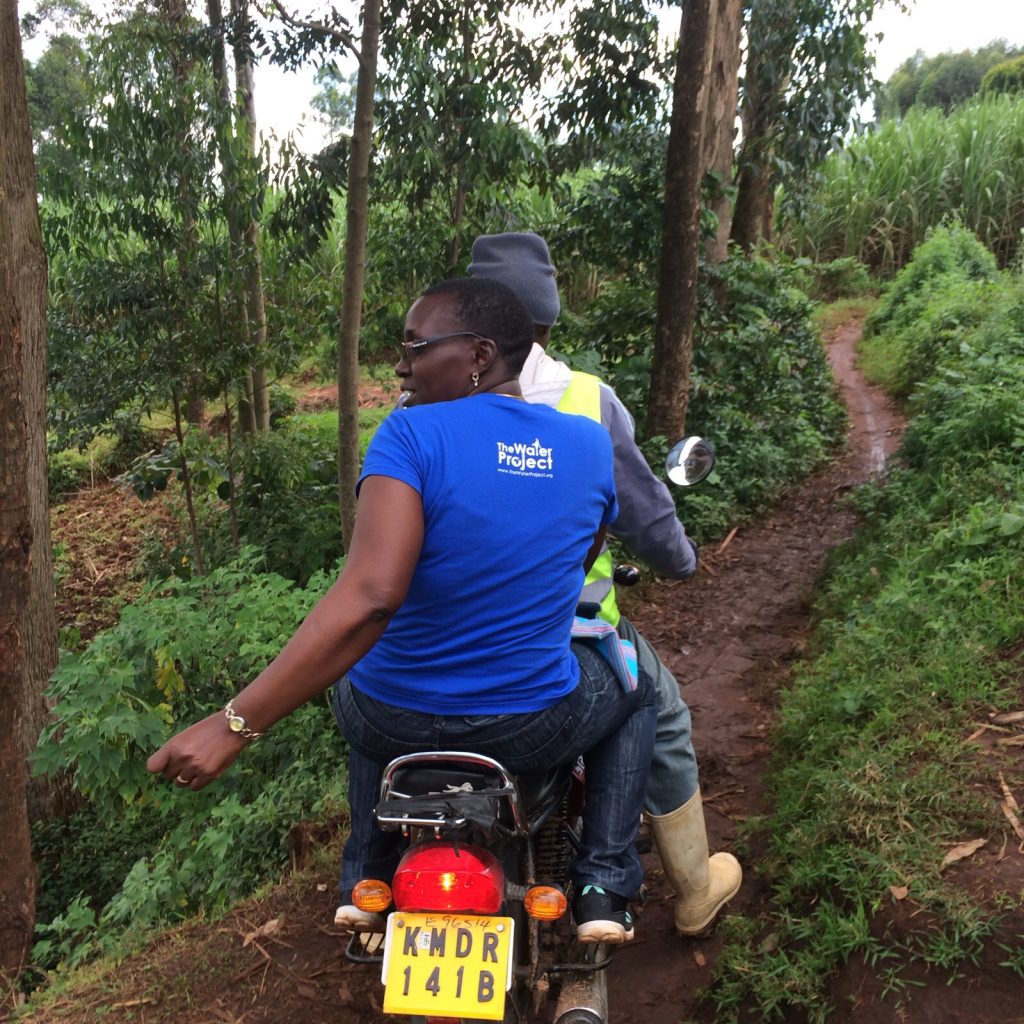
Head of WASH Department Jemimah Khasoha, Western Kenya:
“For any woman who would like to work in WASH, I would advise them it’s the best field to go [into]. [Let] passion, commitment, integrity, and selflessness be their driving force at work, and they will never be disappointed.”
Field Officer Rachael Dorcas Obura, Western Kenya:
“Primary healthcare plays a vital role in promoting water, sanitation, and hygiene. By participating in this sector, women can gain valuable economic empowerment and develop essential skills. These skills will enable them to create and sustain healthy households while prioritizing high standards of hygiene for themselves and their families.”
WASH Officer Betty Johnson, Sierra Leone:
“I would like to give advice to young women that they should wash their hands most often – hand washing skills with clean water and soap. To properly clean the water point and the surroundings. They should practice sanitation and hygiene to provide a friendly environment to live in.
“I would also tell them that, in life, the sky is the limit. If they are passionate about humanity and saving lives, they need to go after a job that will allow them to do just that. Water is life.”
WASH Officer Kadiatu Kamara, Sierra Leone:
“Young women should be willing and ready to serve in WASH. They should see this as a way of helping to serve humanity. There are more opportunities opening every day for women. In the days of my parents, women were not allowed to go to school. Now women are Ministers and candidates for the Presidency. The WASH sector is another milestone we can conquer. They should keep in mind that they are just as important as men and can do anything they set their minds to.”
WASH Officer Lauretta Thompson, Sierra Leone:
“They must have a passion to serve humanity and not focus on making money. [The] WASH sector is a sector for people [who] are goal-oriented and love to help people. They should love what they do and do what they love.”
Program Manager Emma Kelly, United States:
“Don’t be afraid to start small. The water crisis is a big, complex issue that sneaks into all facets of life. Fittingly, ‘working in WASH’ can look like a million different things.
“My first job in WASH was finding the names and contact information of thousands of plumbing inspectors for small towns all across the United States. For hours upon hours, I scoured the pages of municipal websites on a borrowed computer in the basement of my university library. The work felt small and was certainly redundant, but contributed to the larger work of the Last Mile Innovation Lab, which eventually helped reduce the risk of recontamination of water on its way to my own home, as well as those of my neighbors and people across the country. Every small effort to improve water, sanitation, and hygiene access matters — so just jump in and get started!”
Monitoring, Evaluation, Resolution, and Learning Associate Catherine McManus, United States:
“Get good at something you care about! WASH problems will require all types of solutions and all types of thinkers. We need strong women with a range of skills — education, policy, science and technology, public health, communications, economics — odds are if you’re good at something, you can use it to help solve WASH problems.”
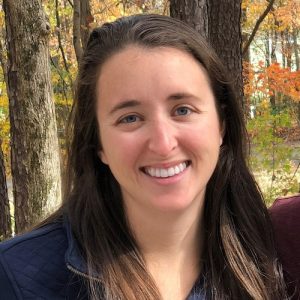
The Transformative Power of Water for Women and Girls
Field Officer Jacquey Kangu, Western Kenya:
“Access to safe water has transformed the lives of women and girls by improving health, education, and even economic opportunities. [It also] reduces the risk of waterborne diseases like diarrhea, stomachaches, typhoid, dysentery, and also backaches and headaches due to traveling long distances carrying water.
“As a result of good health, women are able to participate in a number of income-generating activities, hence [increasing their] productivity. For instance, much produce from farming leads to increased nutrition due to a balanced diet, [and thus an] increased lifespan.
“Access to water also makes it easier for women and girls to carry out and maintain sanitation and hygiene, which increases their confidence even to take up leadership roles in society. There is increased enrollment of girls in learning institutions due to easy water access, which is very crucial in maintaining menstrual hygiene. On top of that, water access has also played a role in reducing absenteeism from school, and as a result, girls pursue their education and achieve their full potential, thus [becoming] self-independent and [promoting] a stable society.”
Field Officer Adelaide Nasimiyu, Western Kenya:
“When schools have clean water, girls no longer have to miss class during menstruation.
“Women spend hours every day walking to fetch water. When clean water is brought closer to their homes, women can use that time to start businesses, grow food, and learn new skills.”
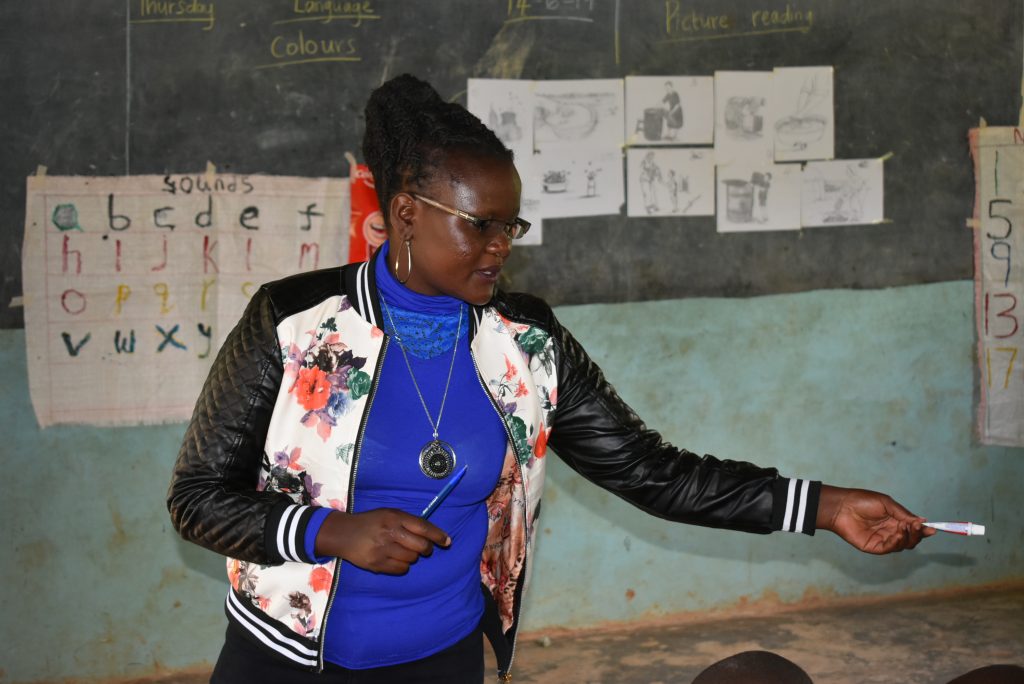
Field Officer Joyce Naliaka, Western Kenya:
“Access to safe water drastically reduces the time women and girls spend collecting water, allowing girls to attend school and women to explore economic opportunities. I have seen families break the cycle of poverty simply because they now have water nearby. It’s a powerful reminder of how essential clean water is to gender equality and development.”
Social WASH Officer Esther Lydia Akol, Uganda:
“In the communities I serve, the most immediate change I have seen and witnessed is the reduction in the time and effort spent searching for safe water. This was not only time-consuming but also physically exhausting for women and girls. They now have more time to engage in income-generating activities, personal development, and education. Girl child education has greatly improved due to regular school attendance.
“For mothers and their children, I have seen safe water access enhance health outcomes, with reduced risks of waterborne diseases like diarrhea in children, especially those under five years. This has led to healthier families and less time spent caring for sick children, freeing up time and energy for garden work and businesses at [the] community level.
“I also have noticed empowerment and dignity amongst women. They have gained a greater sense of control over their lives, and participate more actively in community level and economic activities. In communities I serve in Kiryandongo District, I’ve seen women take on leadership roles in Water and Sanitation committees and advocate for further development projects, which amplifies their voices in decision-making.”
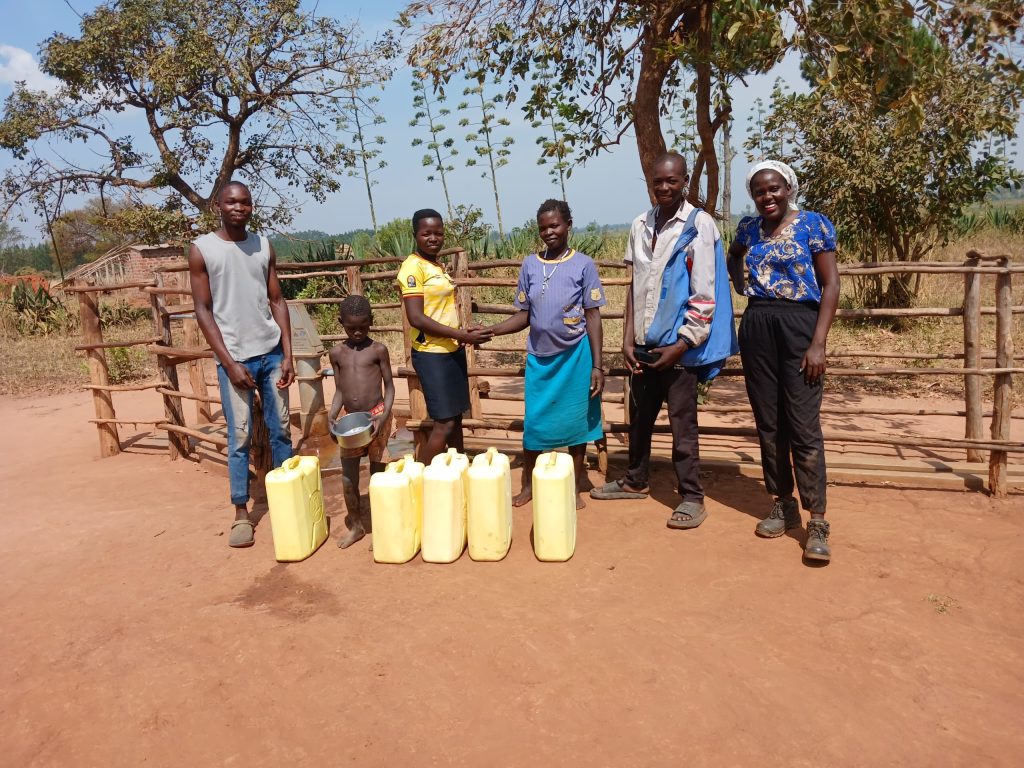
Technical WASH Officer Sarah Katusiime, Uganda:
“Access to safe water has truly transformed the lives of women and girls in remarkable ways. In many communities, water collection has traditionally been a woman’s role, often forcing them to walk long distances and spend hours fetching water. With safe water now readily available, women can reclaim that time for more productive activities, such as income generation and caring for their families.
“For girls, the impact has been equally profound. Improved hygiene, especially in menstrual health management, means they no longer have to miss school due to a lack of water for bathing or washing menstrual materials. They can attend classes with confidence, without fear of blood stains or discomfort. Schools with access to clean water ensure that girls remain in school during their periods, breaking barriers that once held them back.”
WASH Officer Veronica Mwikali Matolo, Southeast Kenya:
“Women and girls gaining access to safe water has really transformed their lives in several ways, like shortening [the] distances that girls and women walked to water sources and reducing [safety concerns].”
“[The] girl child has [always] been responsible for fetching water, thus missing school. Nowadays, [in communities with water], it’s not the case. Girls are freely going to school and learning seamlessly.
“Schools with school water tanks have been able to accommodate girls in their boarding facilities because they have plenty [of] water, thus improving in their studies.
“It has also helped in improving personal esteem because they’re clean, as well as helping them use reusable sanitary towels because they have sufficient water to wash them.”
Program Reporting Services Officer Kelli Hilton, United States:
“As a report writer, I have the privilege of witnessing water projects come full circle — from inception to completion. There’s a special joy in writing final or year-after reports, especially when I wrote the initial report. I get to see transformation firsthand: a girl who once struggled to attend school, exhausted from long journeys to fetch water or fearful for her safety, becomes a girl whose needs are met, who attends school regularly, and who dares to dream.
“Through her words, I read hope. All because of clean water.”
Deputy Director Christine Luvandwa Mugambi, Western Kenya:
“In communities where we have worked, it’s evident that the women are genuinely happier, the workload has significantly reduced, and yet again, others have directed the time and energy [they] previously used to get water to undertake other income generating activities. A happy woman is equal to a happy home.”
Training Officer Lilian Achieng’, Western Kenya:
“I have seen access to safe water bringing self-confidence in girls who can stay clean while in school during their menstruation period. I have seen women testify that their children no longer frequent hospitals
due to water related diseases. Women have been able to regain their freedom from the shackles of ever being in search of water and instead have turned this time into productive moments like small businesses, farming and even religious work.”
Monitoring and Evaluation Leader Janet Kayi, Western Kenya:
“I have witnessed firsthand how access to clean water transforms the lives of women and girls in my community. Before water projects were implemented, many women and girls spent hours walking long distances to fetch water, often from unsafe sources. This daily struggle not only affected their health but also limited their opportunities — girls missed school, and women had little time to engage in income-generating activities.
“One moment that stands out to me was when a spring was installed in a village where women used to wake up before dawn to collect water. After the project, I spoke to a mother who told me how her life had changed — she could now focus on farming and growing her small business, while her daughters could attend school consistently.
“Clean water doesn’t just quench thirst; it restores dignity, improves health, and creates opportunities. It means fewer cases of waterborne diseases, better hygiene, and a chance for women and girls to build a better future. Seeing these transformations reminds me why I do this work and why access to safe water is a fundamental right that we must continue fighting for.”
Head of WASH Department Jemimah Khasoha, Western Kenya:
“We live in a world that has empowered women and girls greatly. Clean and safe water has helped most women and girls by boosting their self-esteem and giving them a better chance of competing, even in the male-dominated careers.”
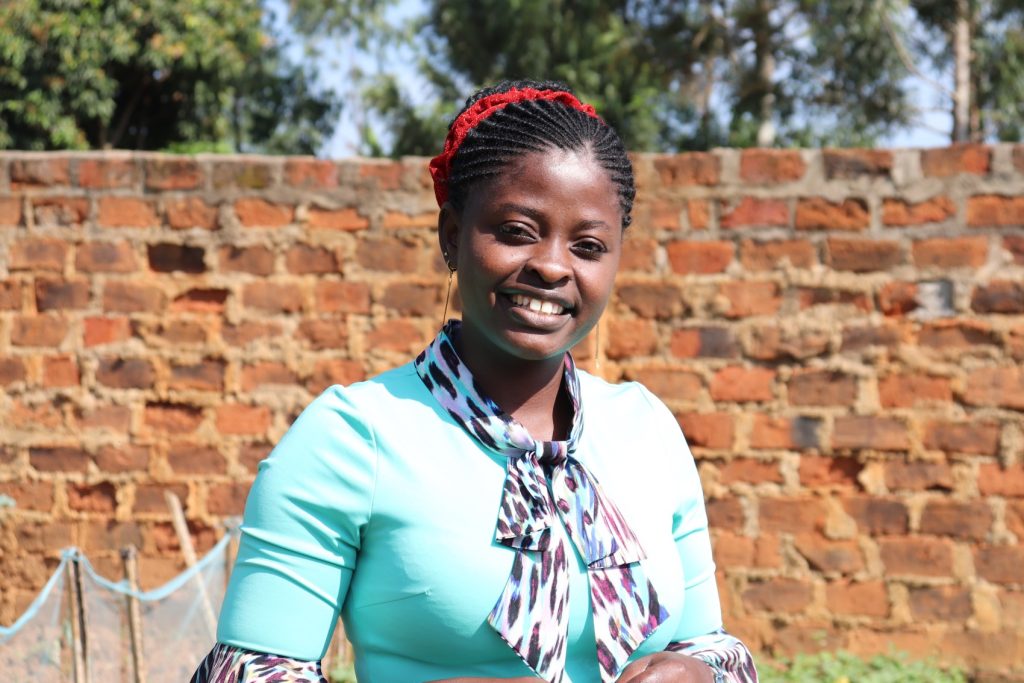
Field Officer Rachael Dorcas Obura, Western Kenya:
“Access to safe water has significantly improved the lives of women and girls in our community by enhancing their hygiene and sanitation practices. With reliable access to water, individuals can maintain cleaner homes, utensils, clothing, and pit latrines, while also practicing effective food handling methods.
“Furthermore, the availability of water has enabled women to establish kitchen gardens, allowing them to grow vegetables for their families. This initiative not only contributes to financial savings but also allows them to allocate resources toward other essential needs. Additionally, women have begun to cultivate vegetables for sale, generating income for their households and fostering economic empowerment within the community.
“For young girls, the time they previously spent collecting water can now be directed towards their schoolwork, thereby improving their grades and helping them achieve their dreams.
“Furthermore, clean and safe drinking water helps prevent diseases such as diarrhea, typhoid, cholera, skin rashes, and dysentery. A healthy family is vital for economic development, as good health provides the energy needed to pursue daily activities without the burden of medical expenses.”
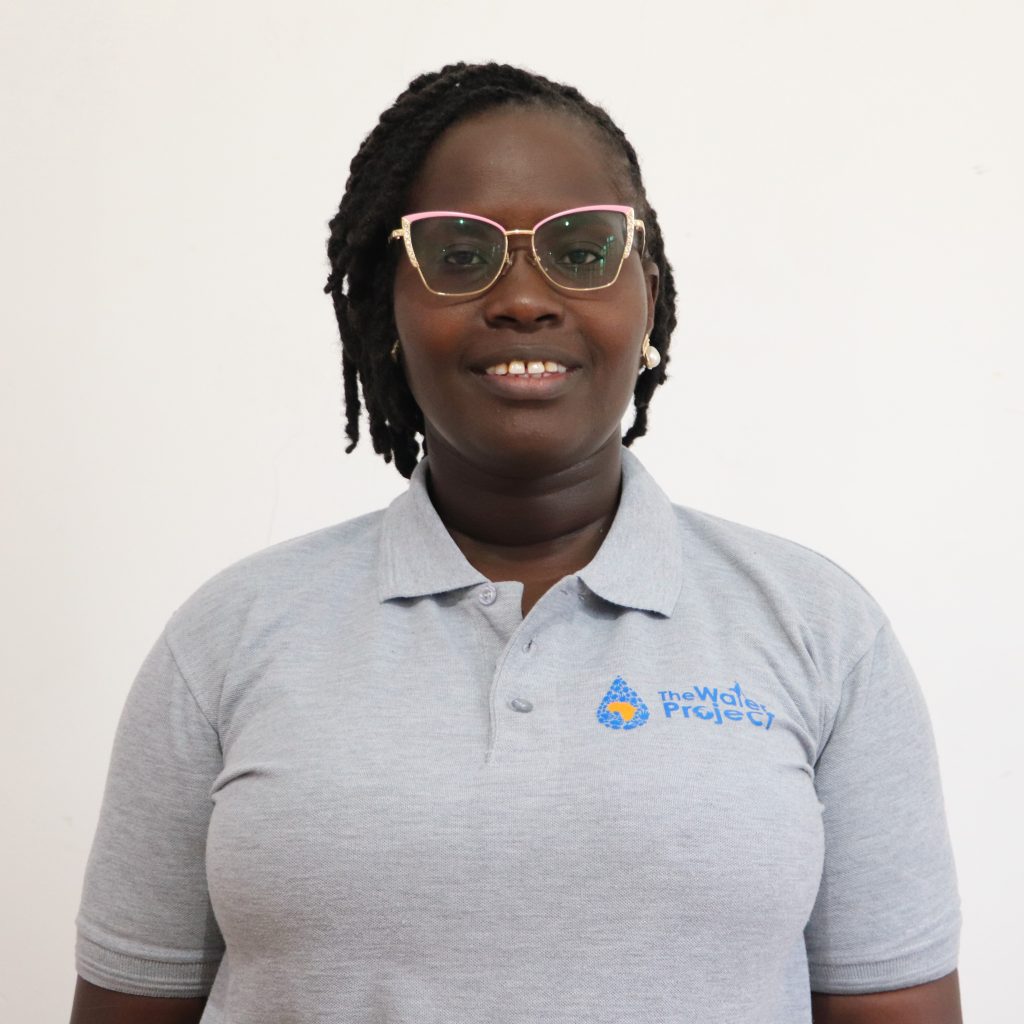
WASH Officer Betty Johnson, Sierra Leone:
“I feel happy when I see women and girls have access to safe water, which contributes to their health. The burden of walking long distances to access water outside their home has reduced, and also spending hours fetching water has reduced, which has led to more time doing other things like studying or having a market to earn a living.
“I have also seen how having access to a safe water source and reusable menstrual hygiene kits has changed the lives of school-going girls. I’m so happy to be part of distributing those and so happy to be part of doing this kind of work.”
WASH Officer Lauretta Thompson, Sierra Leone:
“The women can now cook before nightfall. They now have clean water to drink and cook with. They no longer have to travel far distances just to get water in [their] homes. They used to fetch water and leave it for hours before it [could] be used to drink or cook. They also now have time to tend to the small gardens near their homes instead of having to go to the swamp. They also prepare small businesses and sell at home.
“Babies are now being properly cared for instead of leaving them unattended to go and fetch water far away. Young girls are now regularly attending classes. They now spend more time studying and reduced time fetching water. School marks have improved, with more girls dreaming of becoming professionals and thinking about college [rather] than getting married at a young age.”
Monitoring, Evaluation, Resolution, and Learning Associate Catherine McManus, United States:
“I was lucky enough to go to school and university to get an education and build the safe and happy life I want for myself. We know too well that not every girl around the world has that freedom — and, too often, it’s because their time is taken up hauling water. Any time improved access to a drinking water source allows a girl to attend school for longer, and be eligible for jobs where she can make her own money and choose her own life, the whole world is transformed.”
Conclusion
The stories of these women highlight an undeniable truth: access to safe water is life-changing. It empowers women to pursue education, build businesses, care for their families, and lead their communities toward a healthier future. But millions of women and girls are still waiting for that chance.
This work doesn’t happen on its own. Today, you can stand with these women in their fight for clean water. Whether by sharing their stories, supporting The Water Project’s initiatives, or advocating for WASH programs, your involvement makes a difference.
Water transforms lives. And together, we can ensure that every woman and girl has the opportunity to thrive.
Home More Like ThisTweet